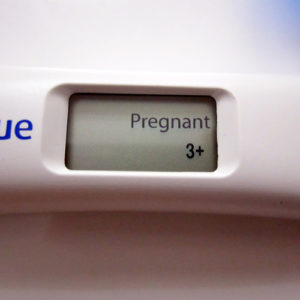Ovarian cysts are fluid-filled sacs that can develop on a woman’s ovaries. They are an extremely common occurrence, with most women experiencing them at some point in their lives. While ovarian cysts often don’t cause any symptoms and frequently go away without needing any treatment, it’s important for women to understand the different types of cysts and when they may require medical intervention.
What is an Ovarian Cyst?
The ovaries are two small, oval-shaped organs located on either side of the uterus. They produce eggs and hormones like oestrogen and progesterone. Follicles on the ovaries contain immature eggs. Every month, a follicle grows larger and ruptures to release a mature egg for potential fertilisation and ovulation.
Ovarian cysts occur when these follicles do not rupture and release the egg. The follicle continues to expand with fluid inside, forming a cyst. Cysts can also form when the follicle does rupture and release the egg, but the empty follicle does not shrink back down as intended after ovulation. Instead, fluid builds up inside the follicle, causing a corpus luteum cyst.
Common Signs and Symptoms
The majority of ovarian cysts produce no signs or symptoms and resolve on their own within one to three menstrual cycles. However, some cysts can grow large and cause symptoms such as:
- Pelvic pain – this may range from a dull, heavy sensation to sudden, severe sharp pains
- Irregular menstrual periods with abnormal bleeding
- Fullness, pressure, swelling, or bloating in the abdomen
- Increased urinary frequency or urgency
- Pain during sexual intercourse
- Difficulty with bowel movements
Severe pain that comes on suddenly could be a sign of ovarian torsion or cyst rupture. Ovarian torsion occurs when the cyst twists around the ovary, cutting off its blood supply. This requires prompt medical attention.
Diagnosis and Treatment
If ovarian cysts are suspected based on a woman’s symptoms, an ultrasound scan can accurately detect and diagnose them. Blood tests may also be ordered to check hormone levels.
The good news is most functional ovarian cysts resolve without any treatment within six to eight weeks. The best approach is typically watchful waiting. However, follow-up ultrasounds may be recommended to monitor the cyst.
Pain medications can help relieve symptoms. Hormonal birth control pills may be prescribed to help prevent new cysts from forming.
Surgery is only required in certain cases, such as if the cyst persists longer than two to three months, grows very large, causes severe symptoms, or appears potentially cancerous. The cyst may be drained, or the affected ovary may be surgically removed.
Types of Ovarian Cysts
There are several different classifications of ovarian cysts:
Functional cysts – These form as a result of the menstrual cycle. Follicular cysts occur when the follicle does not release the egg. Corpus luteum cysts occur when the follicle does not shrink after releasing the egg.
Hemorrhagic cysts – These cysts occur when bleeding occurs inside the follicle.
Endometriomas – Cysts that develop when endometrial tissue from the uterus attaches to the ovaries. These are associated with endometriosis.
Dermoid cysts – Abnormal cysts that can contain tissue such as hair, skin, or teeth.
When to See a Doctor
While the majority of cysts resolve naturally without intervention, it’s important to know when to see a doctor. You should make an urgent same-day appointment if you have:
- Severe pain that comes on suddenly
- Fever
- Vomiting
- Fainting
See your doctor within a couple of days if you have:
- Pelvic pain that is worsening
- Pain during sex or bowel movements
- Irregular periods or abnormal vaginal bleeding
- Difficulty urinating or increased urge to urinate
- Significant bloating/ abdominal swelling
Monitoring cysts is important, as rarely they can become cancerous. Understanding ovarian cysts empowers women to take charge of their health.
Photo credit; “Pain” by Anthony Cunningham for Zoom Baby
Zoom Baby is a leading supplier of Pregnancy Tests and Ovulation Test Kits





